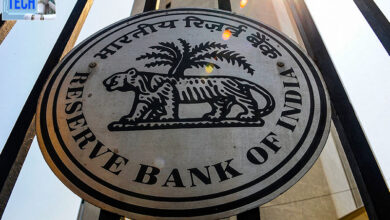Bahrain FinTech Bay CEO Bader Sater on Boosting Bahrain’s Fintech Ecosystem

Bahrain FinTech Bay, founded in 2018, operates closely with the Bahraini government, the Economic Development Board, and the Central Bank of Bahrain to foster the country’s fintech ecosystem. Sater described their approach as multi-faceted, focusing on human capital development through education and university partnerships, organising events to raise awareness on fintech sub-sectors, accelerating fintech startups, and contributing to thought leadership and research within the fintech space.
Bader Sater, Chief Executive Officer of Bahrain FinTech Bay, recently shared insights into his role and the organisation’s initiatives during an interview with Mark Walker, Editorial Director at The Fintech Times, at the Dubai Fintech Summit.
One of Bahrain FinTech Bay’s key objectives is to support

local talent and attract global fintech companies to establish a meaningful presence in Bahrain. Sater emphasised the strategic partnership with the Economic Development Board, which aims to bring the best global fintechs to Bahrain and integrate them into the local economy. For instance, Citibank has established a development hub in Bahrain, planning to hire over 1,000 developers in the next decade, illustrating the successful attraction of major financial players to the region.
Sater noted that Bahrain’s longstanding investment in human capital has been crucial. The country has a deep-rooted history in the financial services sector dating back to the 1970s, which has naturally progressed towards fintech solutions. This foundation, coupled with robust support programmes, has made Bahrainis a preferred choice for employment in fintech organisations.
The COVID-19 pandemic accelerated digital transformation in financial services globally, and Bahrain was well-positioned to adapt. Pre-COVID, the necessary digital infrastructure was already in place, and the pandemic shifted cultural habits towards digital transactions. Sater highlighted that Bahrain now ranks second globally in peer-to-peer and direct bank account transfers, with an average of 84 transactions per person per month.
While Bahrain is a relatively small market, Sater pointed out that it offers significant opportunities for global companies seeking a foothold in the GCC region. Bahrain’s strategic location provides seamless access to larger markets, particularly Saudi Arabia. The cost-effective environment and advanced regulations make it an attractive destination for fintech firms, especially those requiring localisation and development work for the GCC region.
Sater identified the crypto space as a particularly successful sector in Bahrain. With crypto regulations established since 2018, Bahrain FinTech Bay hosts prominent crypto firms like Binance. These companies can provide a full suite of services, including onboarding, corporate and VIP accounts, and retail operations, all from within Bahrain. The unified regulatory framework for both crypto and traditional markets facilitates easier collaboration with banking partners, unlike in some jurisdictions where operational challenges persist despite licensing.
Investment remains a crucial pillar of Bahrain’s fintech ecosystem. While the internal investment landscape is modest, reflecting the market size, fintech companies in Bahrain have successfully secured funding from across the GCC. The region is viewed as a single investment block, with significant contributions from the UAE and Saudi Arabia. Sater acknowledged the challenge of early-stage funding but highlighted Bahrain’s cost-effective setup and supportive environment as beneficial for startups looking to enter the market.
Reflecting on the Dubai Fintech Summit, Sater appreciated the opportunity to reconnect with industry peers and discuss developments and future directions. The in-person interactions, particularly valuable post-COVID, have sparked new ideas and potential collaborations for Bahrain FinTech Bay.
Overall, Bahrain FinTech Bay continues to play a pivotal role in advancing Bahrain’s fintech ecosystem, leveraging strategic partnerships, fostering innovation, and attracting global players to contribute to the local and regional economy.



